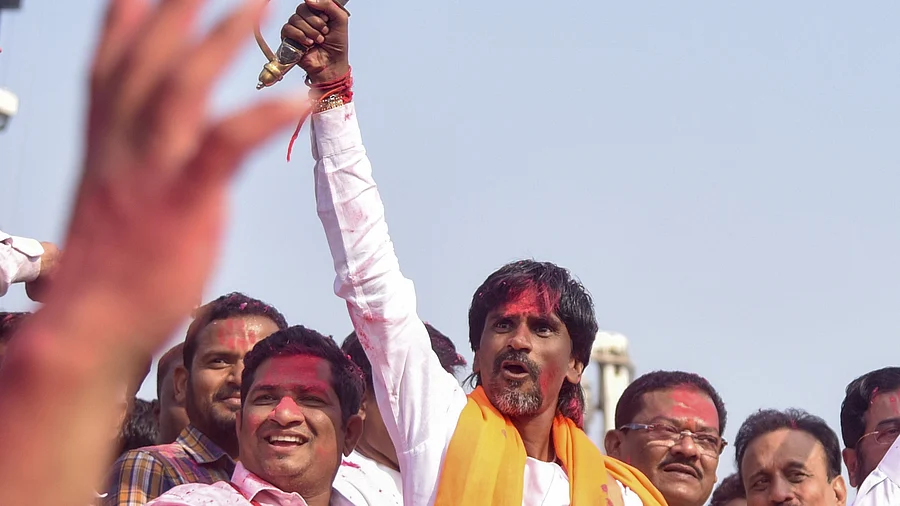
Maratha reservation activist Manoj Jarange Patil with supporters after the Maharashtra government accepted his demands, in Navi Mumbai, Saturday, Jan 27 2024.
Credit: PTI Photo
The agreement between the Maharashtra government and the Maratha quota agitationists led by activist Manoj Jarange was a face-saving agreement for both, but it is unlikely to be the final word on it.
Jarange has ended his protest and claimed that all the demands of the community for quotas in jobs and educational institutions have been accepted by the government.
The government has announced that members of the community can now claim reservation benefits by submitting an affidavit attesting to their status as Kunbis who used to be considered a backward class community in the erstwhile Nizam-ruled areas of the state. It has notified that male relatives of Marathas whose Kunbi lineage has been identified would be eligible for reservation and relatives on the women’s side would be eligible if they belonged to the same caste.
It is doubtful if this will form the basis of a stable and effective reservation regime.
Jarange has himself appealed to people to send their suggestions to the government on a strong reservation law. There are apprehensions even among his followers and he has issued a warning to the government.
The legality of granting reservations through an executive fiat will be questioned in court.
The courts have in the past struck down laws passed by the legislature granting reservations for the Maratha community. They have always insisted that the backwardness of a community should be proved with data before that community is granted reservations. The Marathas are a numerically large community.
The present decision may make over 5.7 million people eligible for reservation. Those who are enjoying the OBC reservation benefit will have to share it with the Marathas. This will mean a shrinking of their opportunities, and they have protested against this. Senior OBC leader and minister in the Eknath Shinde government Chhagan Bhujbal has made known his opposition to the government’s decision. He has held a meeting with OBC legislators and leaders and decided to stage protests against the decision.
The Marathas are not only numerically large but socially and economically powerful, too. They have always dominated Maharashtra’s politics and society and so the case for granting them reservation is very weak. Many of them are farmers who find, like other farmers, that agriculture is not a paying vocation.
There is also unemployment in both towns and villages. But the remedy may not be reservation. Job opportunities are also shrinking in the government sector. When the available reservation pie is to be shared by too many, that will give rise to discontent and protests. Increasing reservation beyond the limit set by the Supreme Court is not easy and will give rise to other problems.
